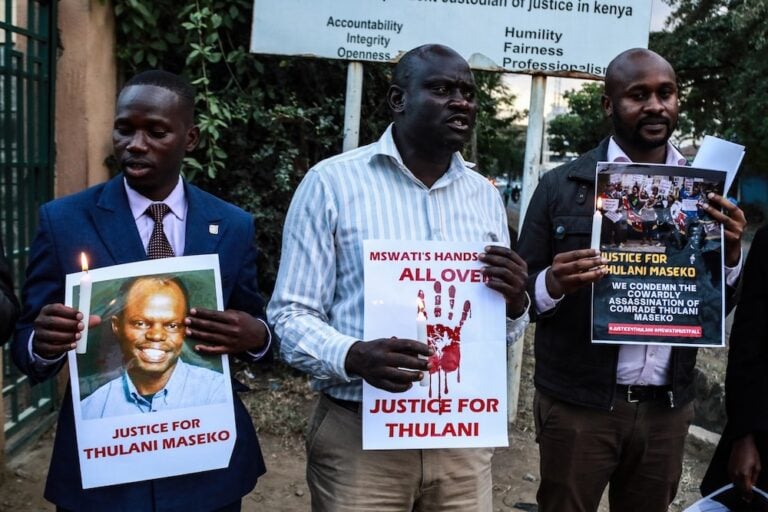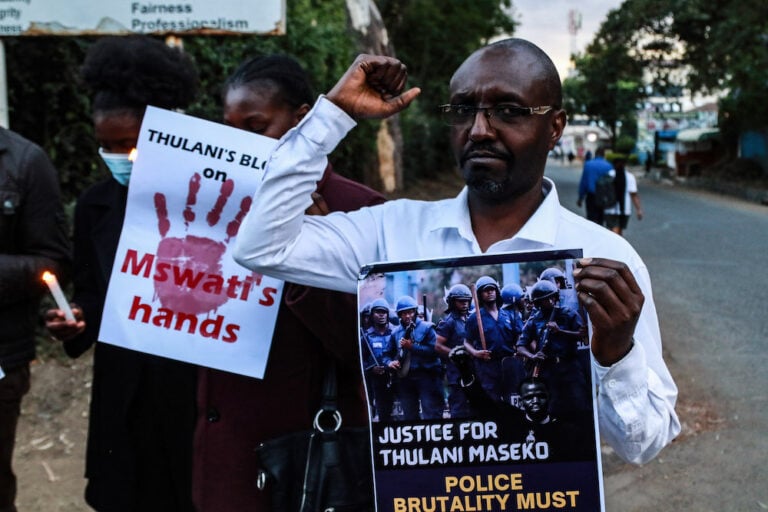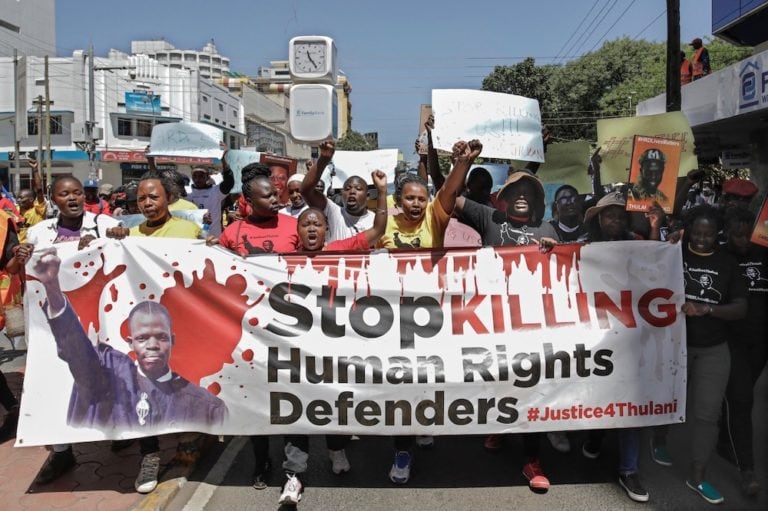(MISA/IFEX) – On 5 January 2009, Mfomfo Nkambule, a columnist with the privately-owned “Times of Swaziland” newspaper was censored by state police who interrogated him concerning his weekly articles which are often critical of the king and his leadership. Nkambule, an ex-cabinet minister and member of parliament but now chairperson of a political party known […]
(MISA/IFEX) – On 5 January 2009, Mfomfo Nkambule, a columnist with the privately-owned “Times of Swaziland” newspaper was censored by state police who interrogated him concerning his weekly articles which are often critical of the king and his leadership.
Nkambule, an ex-cabinet minister and member of parliament but now chairperson of a political party known as Inhlava, was summoned by a senior police officer who warned him that his articles would incite people to revolt against the king. He was told to stop being critical of the king and the status quo.
“I was summoned by the head of the Intelligence Unit who was with two other senior cops. They questioned me over my recent articles and I was warned that the articles were now taking a subversive slant and further cautioned that I was now skating on thin ice,” Nkambule told the media.
He said the police impressed upon him that the articles were no longer just columns but were starting to criticise authorities and could incite people to revolt against the head of state and this was beginning to pose a security threat.
Nkambule further said the officers also informed him that as much as the country had a new constitution, there were still laws that could be used against him which were enacted before independence and such actions would have serious consequences for Nkambule.
He said his response to the police was that he understood their concerns and thanked them for their warning.
The Media Institute of Southern Africa (MISA) Swaziland chapter has condemned the police action to censor the columnist and by extension the newspaper he writes for.
In a statement published in the media on 7 January, the MISA National Director, Comfort Mabuza, said state threats against the media and citizens were uncalled for and that this was a serious infringement on the fundamental right to freedom of expression.
Mabuza said the state should know that people have a right to express themselves freely without intimidation. He said such right was guaranteed in the Swazi constitution and reiterated that MISA-Swaziland will always guard against the violation of such rights.
The “Times” newspaper, in an editorial published on 7 January, also bemoaned this incidence of censorship. The newspaper observed that it seems that days are numbered for even minimal freedom of speech for Swazi citizens and asked the question, “Where is the democracy in a society that cannot think, speak or express itself freely? Is this how unique our system is, where forced silence means we consent to how certain people want to run our lives?”
The newspaper warned that, “Suppression of the media and rule by force is certainly not the future Swaziland we all envisage.”


